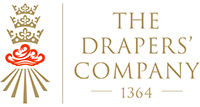Celebrating 50 Years
Born out of collaboration, the RNCM is the product of two pioneering musical institutions and the many people who’ve played a part in our history to date.
Since officially opening our doors in September 1973, we’ve developed the traditions of conservatoire training and transformed them into a vibrant and forward-thinking laboratory, fuelling the aspirations of young musicians, composers, conductors, educators, and entrepreneurs from all over the world.
Impacting the industry on a global scale, today’s RNCM is driven to define the future of music. A place of true innovation and exceptional talent, where creativity flows freely, inspiring ambition to become reality.
Browse our timeline to see our story unfold.
1893
Born from collaboration
The Royal Manchester College of Music (RMCM) (pictured) opens on Ducie Street on 3 October. Its Founding Principal is Sir Charles Hallé.
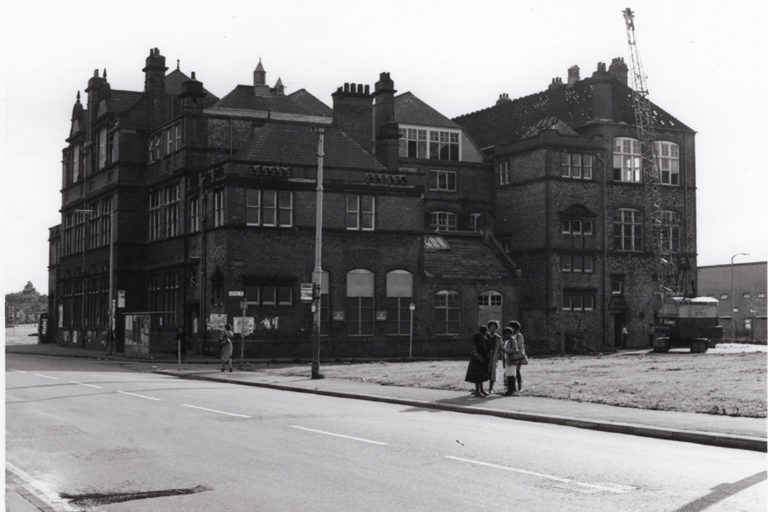
1920
The Matthay School of Music opens on Deansgate on 22 September. Its Founding Principal is Hilda Collens.
In 1943, the school is incorporated as the Northern School of Music (NSM) (pictured).
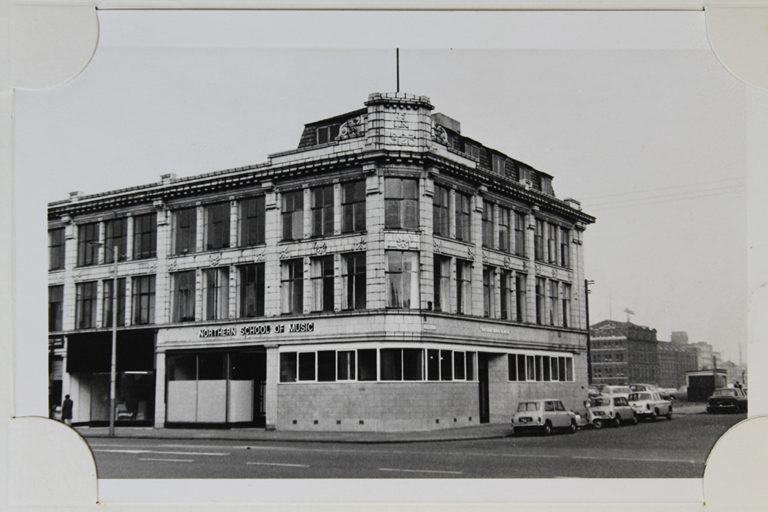
1955
Informal discussions towards a possible merger of the RMCM and NSM begin.
In 1956, following the death of Hilda Collens, Ida Carroll (pictured) is appointed Principal of the NSM.
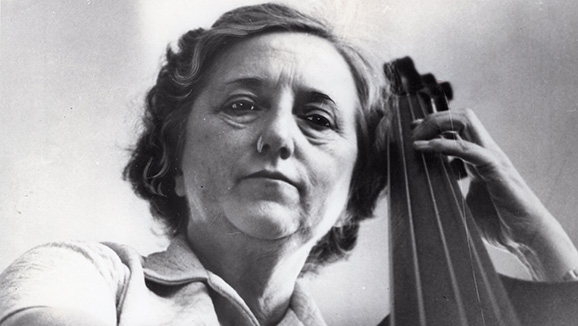
1958 – 66
Discussions of the merger between the RMCM and NSM continue, with local authorities now involved. A Steering Committee is formed in 1961 to oversee the establishment of a new college, and in 1962, a site on Oxford Road is identified.
Bickerdike, Allen, Rich and Partners are commissioned as architects in 1963 but building plans are delayed.
In 1966, a Joint Committee for the formation of the new Northern College of Music (NCM) is formed.
1968
Approval of the construction of the new Northern College of Music (NCM) is given by the Department of Education and Science. Kathleen Ollerenshaw becomes Chair of the Joint Committee. Two years later she is awarded Dame Commander of the Order of the British Empire for services to education.
1969 – 72
A rich history
Construction of the NCM begins (pictured), and an organ, costing £40,000, is commissioned from Hradetzky of Austria. The organ is still in use today.
John Manduell is offered principalship, taking up office in 1971.
In September 1972, 300 RMCM and 150 NSM students are admitted to the partially completed NCM, which includes a separate Junior School (later to become Junior RNCM) of 49 young musicians.
The first concert of the NCM Orchestra takes place at Manchester Town Hall as the Concert Hall is not yet finished.
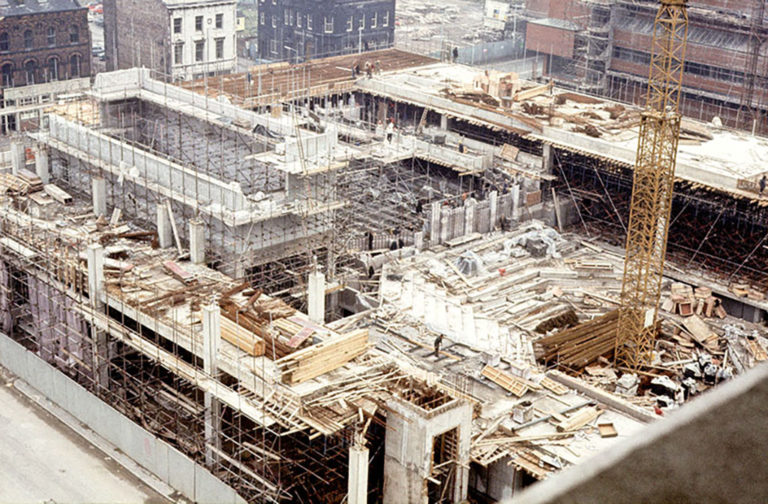
1973
Her Majesty the Queen grants the prefix ‘Royal’ to the Northern College of Music and membership of the Associated Board of the Royal Schools of Music begins.
Building work is completed and the new Royal Northern College of Music (RNCM) is officially opened by its President, the Duchess of Kent (pictured with Dame Kathleen Ollerenshaw), on 28 June.
Teaching for the innovative four-year undergraduate course formally begins with six Schools established: Composition and Performance, Keyboard Studies, Strings, Theory and Humanities, Wind and Percussion, and Vocal Studies.
Walton’s The Bear and Crosse’s Purgatory are the first operas to be given in the RNCM Theatre.
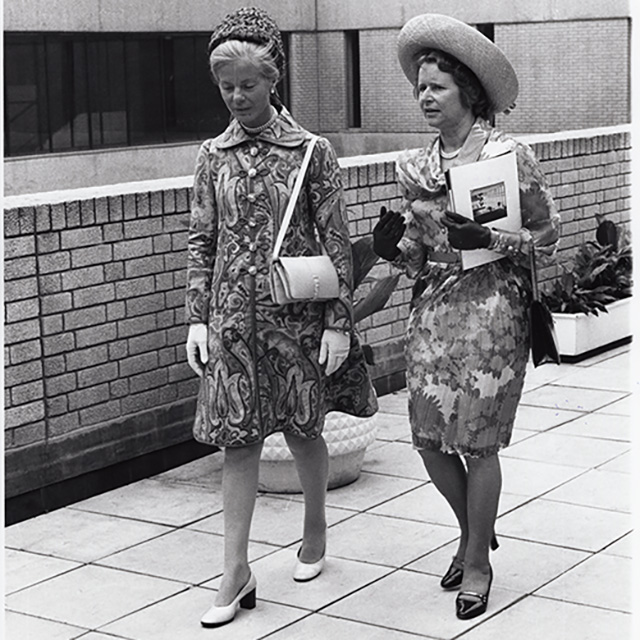
1974
Hartley Victoria College on Alexandra Road South is bought as a hall of residence and renamed Hartley Hall (pictured).
The first Congregation of Awards is held and the RNCM Roof Garden opens.
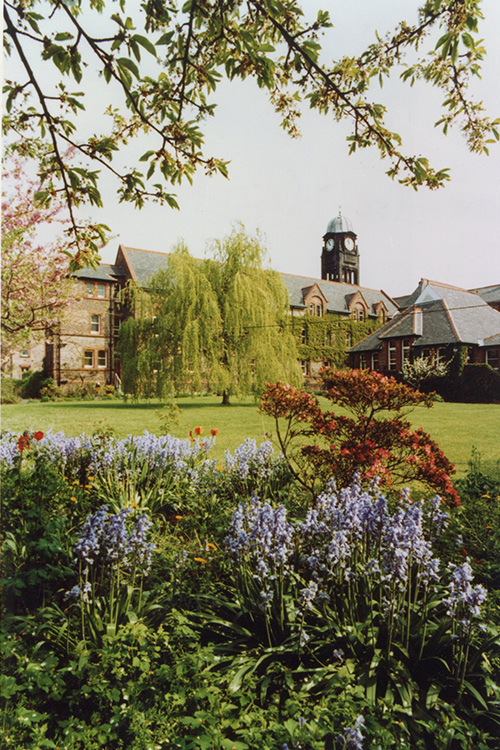
1978 – 88
A decade of incredible performances and achievements includes Wagner’s Das Rheingold (1978) and Britten’s Billy Budd (1985, pictured below); the formation of the RNCM Sinfonia (1980) and RNCM Chorus (1982); a new exchange programme between the College and the Frankfurt Hochschule für Musik (1980); and the first of many Manchester International Cello Festivals (1988).
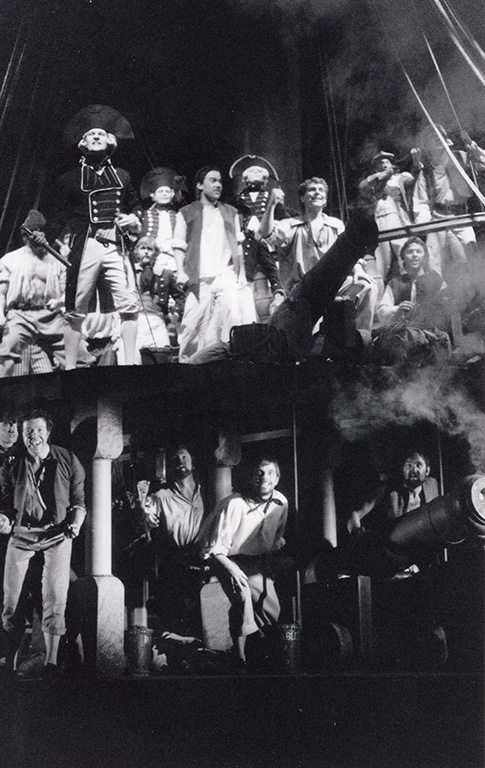
1989
RNCM Opera’s production of Verdi’s Don Carlos wins the Manchester Evening News Theatre Award for Best Opera. It will be the first of many for the College.
John Manduell is knighted.
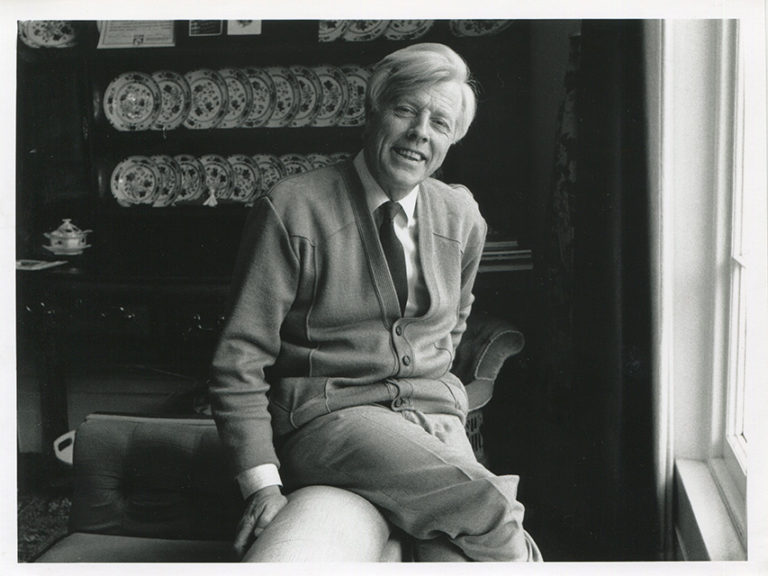
1990 – 91
The College launches the first course for Brass Bands in UK conservatoire history.
The RNCM Wind Orchestra is the first from a conservatoire to play at the BBC Proms.
The RNCM holds its first workshop in Dalcroze Eurhythmics, given by Bob Abramson.
1995
The end of an era is marked by the sad passing of Ida Carroll OBE and the retirement of Sir John Manduell (pictured).
1996
Professor Edward Gregson is appointed Principal.
1997
The extension on Booth Street West opens bringing a new library, five rehearsal spaces, 25 soundproof teaching rooms, and dedicated storage for the RNCM Archives and Collection of Historic Musical Instruments.
1998
The Junior Strings Project, established in 1992, wins The Queen’s Anniversary Prize for Higher and Further Education for Teaching of musical instruments to large groups.
1999
The inaugural RNCM Chamber Music and Brass Band Festivals take place.
2000
A new century
A second Queen’s Anniversary Prize for Higher and Further Education is awarded, this time for Wind ensemble music: commissioning, training and performance.
2001
Hartley Hall closes, making way for the opening of Sir Charles Groves Hall of Residence.
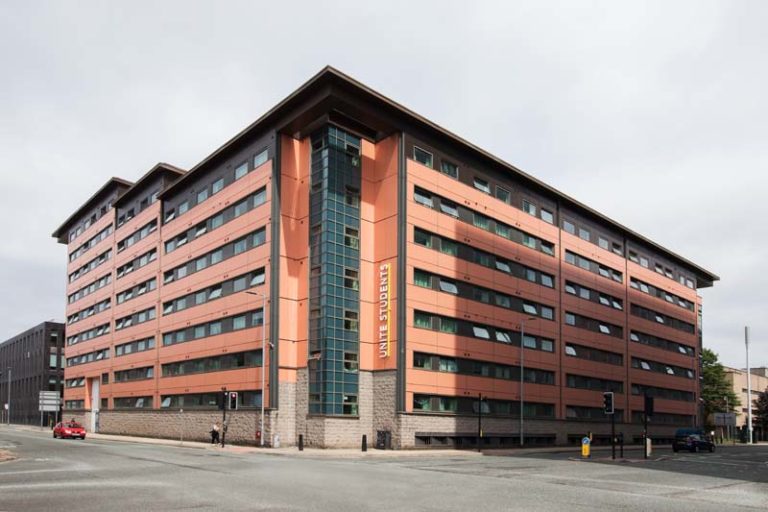
2002
The RNCM’s International music festivals: education, cultural and for the public secures a third Queen’s Anniversary Prize for Higher and Further Education.
The RNCM Wind Orchestra gives the College’s first ever webcast with over 600 people tuning in.
The RNCM is ranked the best music institute in the country in the Guardian University Guide.
The first RNCM Gold Medals are awarded.
2003
The College reaches the quarter finals of University Challenge.
2006 – 07
The Oxford Road Wing opens (pictured), housing the Centre for Excellence in Teaching and Learning (CETL). It allows for qualified teacher status while continuing performance-based studies.
The College also gains degree awarding powers for its taught courses.
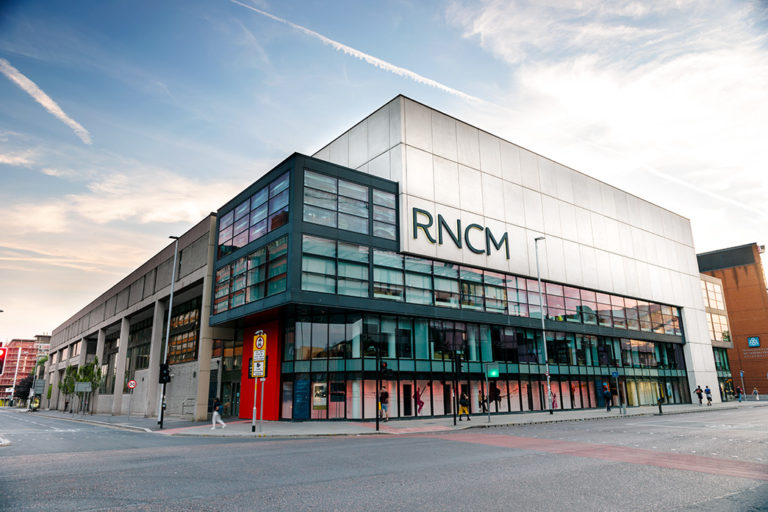
2009
A doctoral Research Degree is established, validated by Manchester Metropolitan University.
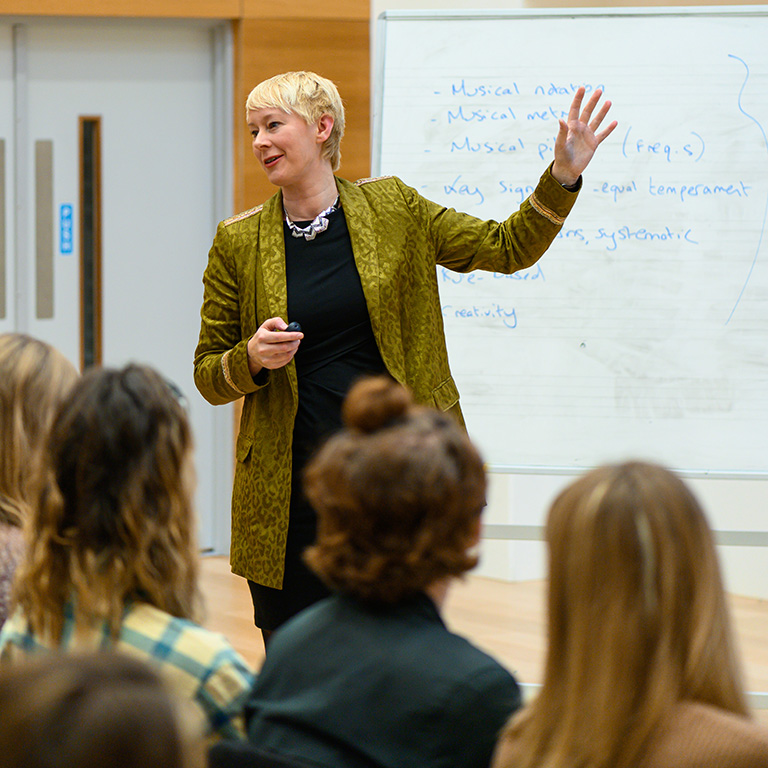
2010
Fuelling Aspirations
The RNCM establishes the International Benchmarking Group, working with some of the world’s leading conservatoires to enhance the professional and personal development of young musicians globally.
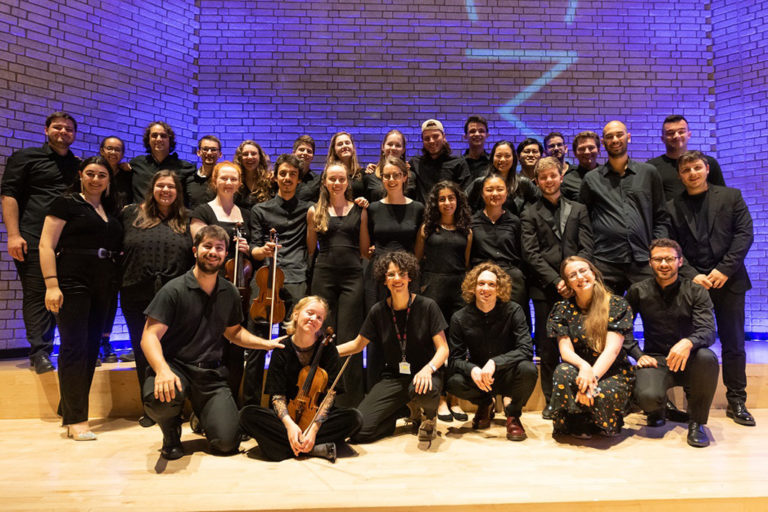
2013
The RNCM celebrates its 40th anniversary with a year-long festival dedicated to Beethoven, including 40 concerts in 40 venues across the city, and a spectacular finale at the British Museum, London (pictured).
Professor Linda Merrick is appointed Principal.
Work to refurbish the RNCM Concert Hall begins.
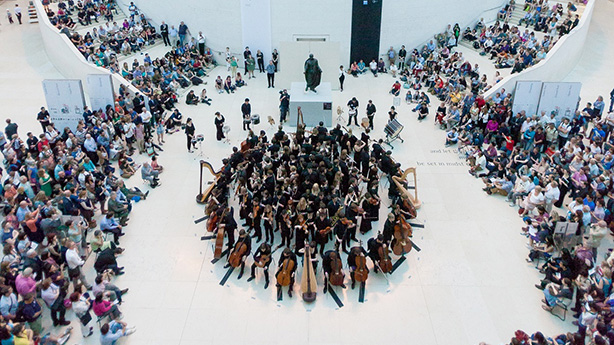
2014
The RNCM is ranked the UK’s leading music college for research in the Research Excellence Framework.
2015
The refurbished Concert Hall and backstage area opens, including new flooring and seating, advanced technical facilities and lighting, and a balcony and raised floor area to considerably increase capacity.
The College launches the UK’s first four-year BMus Honours Degree in Popular Music.
After the Silence: Music in the Shadow of War, an off-site project at Imperial War Museum North, wins the Times Higher Education Award for Excellence and Innovation in the Arts (pictured).
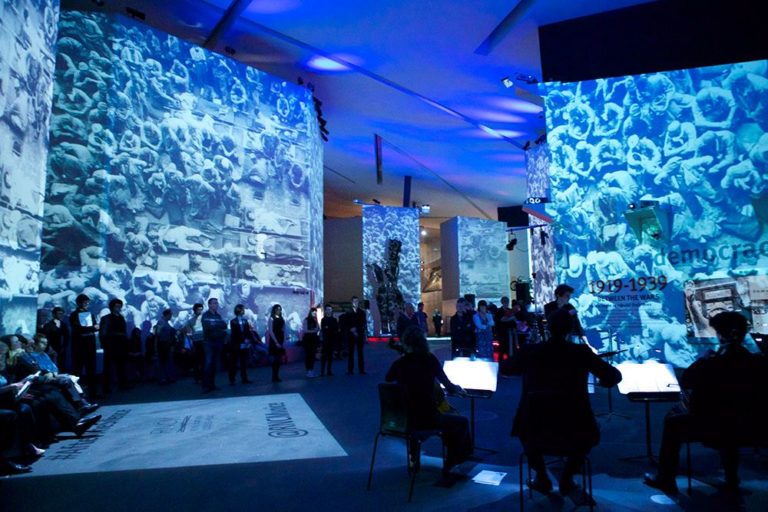
2016
The RNCM Entrepreneurship Awards are established, enabling students to develop independent projects with support from industry experts.
The Studio Theatre is transformed into Studio 1 (pictured), a state-of-the-art rehearsal and recording space for popular music students, and the world’s largest BOXY studio at the time of installation.
Read with the World, a project enabling international students to develop their language skills and cross-cultural competencies via a buddy scheme, wins the Times Higher Education Award for Outstanding International Student Strategy.
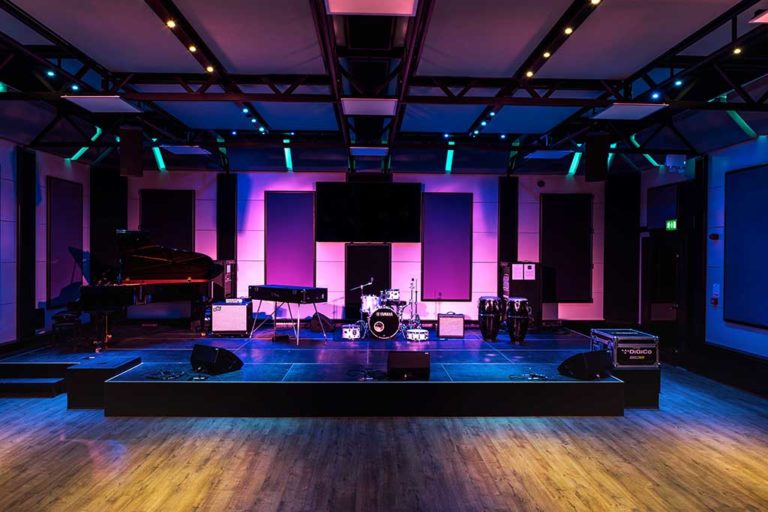
2017
The RNCM is awarded Gold in the Teaching Excellence Framework.
Alumnus Sir John Tomlinson CBE is appointed President.
The College receives substantial funding to launch two research and development projects: Ensemble+ and PRiSM (the RNCM Centre for Practice & Research in Science & Music).
RNCM Pathfinder is established, breaking down barriers and increasing opportunities for children and young people to access music (pictured).
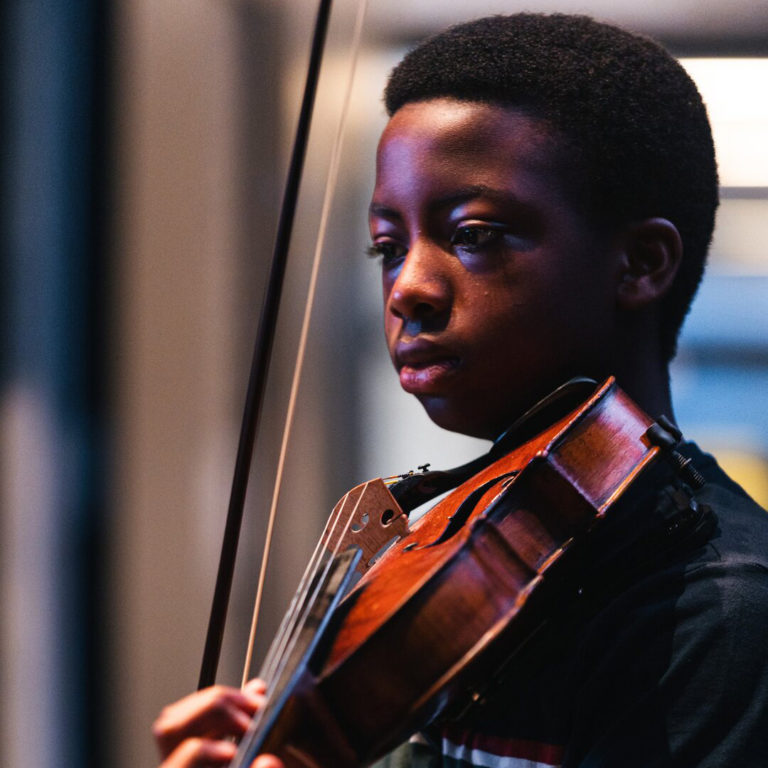
2018
Paris-Manchester 1918, a significant performance and research project in collaboration with the Conservatoire de Paris takes place. It includes a substantial Conservatoires in Times of War online exhibition, an international conference commemorating the centenaries of the First World War and the death of Debussy, and a joint Symphony Orchestra (pictured).
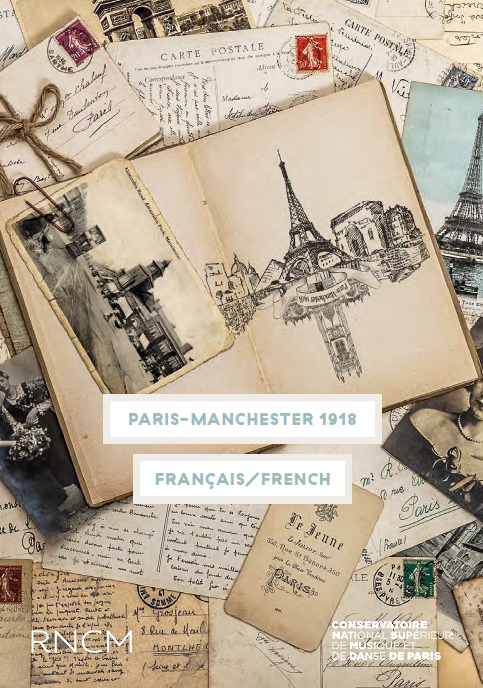
2020
Defining the future of music
The College launches its new strategic plan, Defining the Future of Music. The ambitious vision will enable graduates to become highly skilled, creative practitioners with a commitment to making a real difference in society. It will also see the development of its public performance and outreach programmes.
The outbreak of Covid-19 causes the RNCM to close its doors to staff, students and the public on 18 March. All teaching and learning is remote, creating an innovative programme of online lectures, masterclasses, recitals, open days and fundraising campaigns.
In the Autumn, some students return for blended learning; the first Thursday Lates concert (pictured) is broadcast to homes across the globe; and RNCM Opera presents a Covid-secure production of Janáček’s The Cunning Little Vixen.
The outstanding work of RNCM Engage secures the College its third Times Higher Education Award, this time for Widening Participation and Outreach Initiative of the Year.
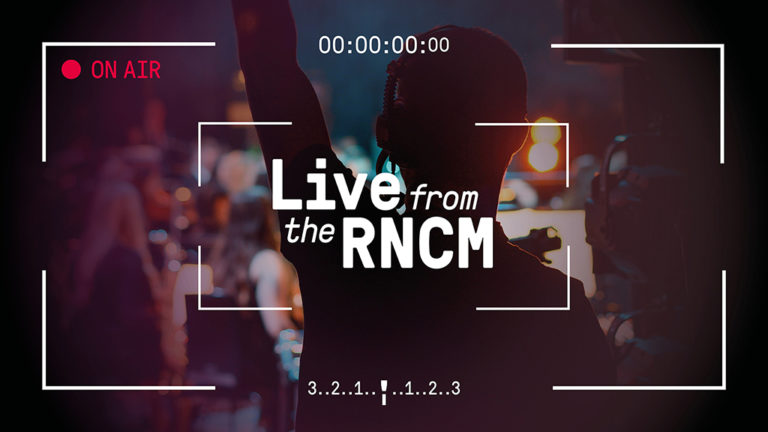
2021
The first intake of the newly revalidated undergraduate degrees, designed to develop and support sustainable careers both on and off stage, arrive.
The RNCM wins the Educational Links category at the Greater China Awards.
Studio 8 (pictured), the UK’s first Meyer Constellation system in higher education, is unveiled as the flagship resource of Ensemble+.
The RNCM receives £6.5 million from the Public Sector Decarbonisation Scheme to improve the quality and efficiency of its estate and develop a forward strategy around the route to decarbonisation (pictured).
Audiences return to enjoy socially distanced performances (pictured).
The College enters University Challenge for a second time.
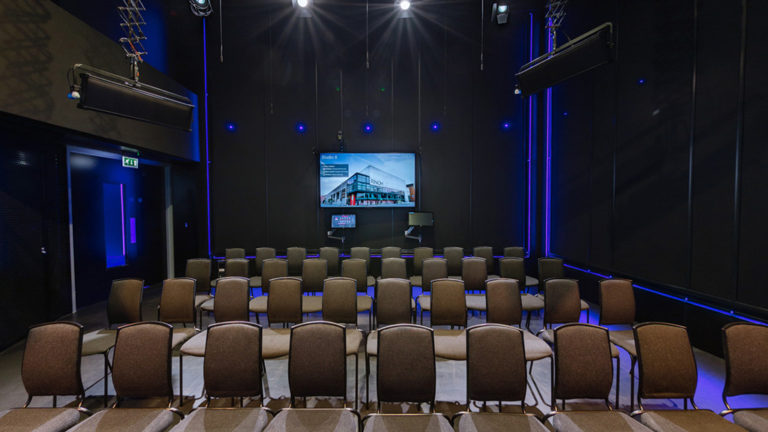
2022
All Covid-19 safety measures are removed. Live music returns and teaching and learning retain a blended format of online and in person activity, taking advantage of the newly implemented technology and resources.
The College celebrates a belated 10th anniversary of the International Benchmarking Group (pictured).
RNCM Young Artists, an initiative supporting popular musicians aged 11-18 from across the region, launches.
Wellbeing Hubs for staff and students are established.
Refurbishment of the Café and Concourses begin.
The College welcomes its 2022/23 intake. Its student population now sits at almost 1000.
50th anniversary celebrations begin.
RNCM50 Fund Partners
